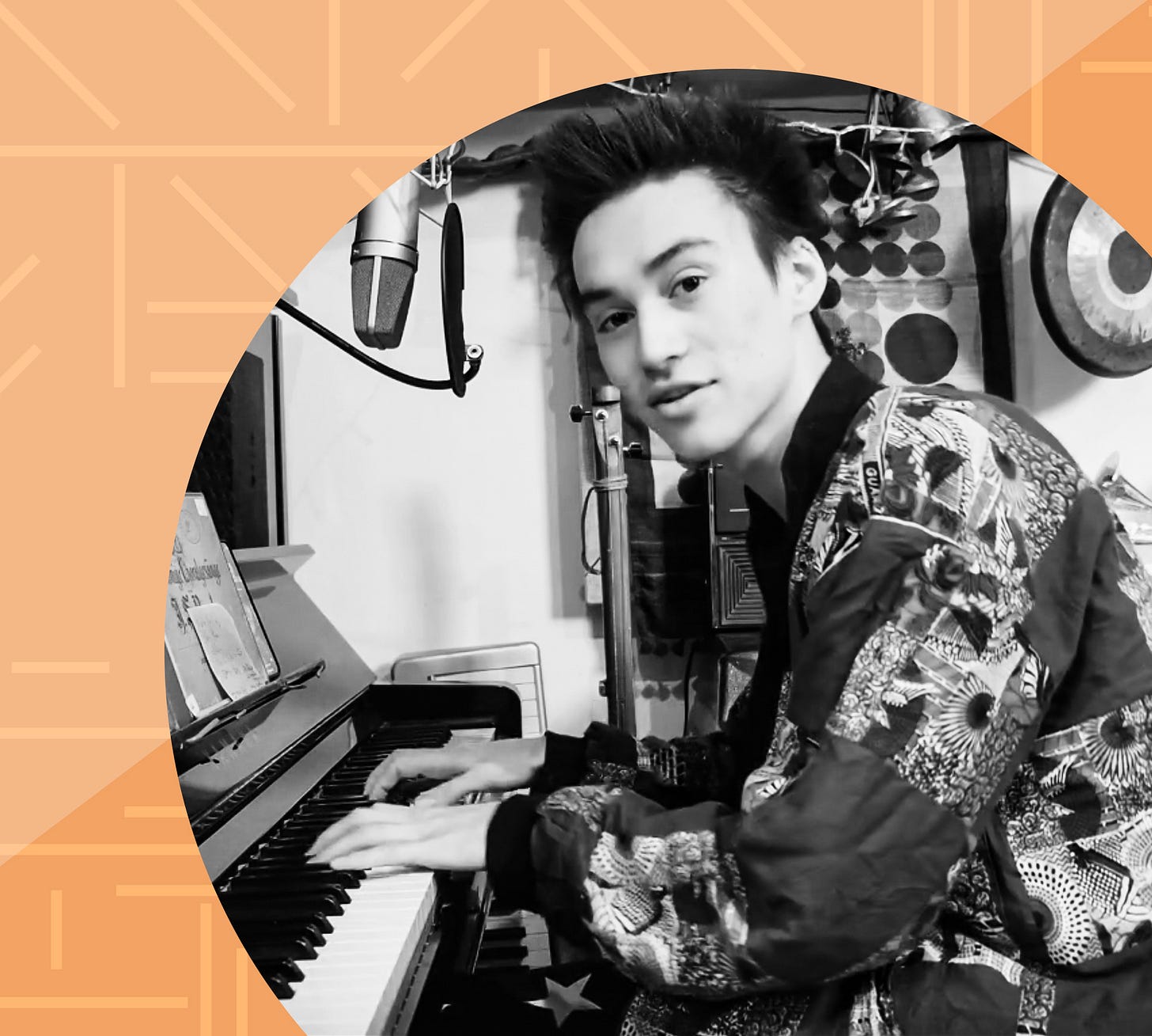In a quiet North London home, filled with the echoes of Bach and Brahms, a young Jacob Collier discovered the piano. His mother, Susan, a violinist and conductor, had cultivated a world brimming with classical music and creative freedom. But for Jacob, the piano wasn’t just an instrument—it was a portal. It called to him not with the rigid authority of lessons, but with the tantalizing promise of discovery. He would press a single key and listen as the sound filled the room, as if the piano itself whispered secrets of the universe.
Jacob’s early days at the piano were anything but conventional. While other children dutifully practised scales, Jacob improvised. He’d pick apart melodies he heard on the radio, reimagining them with colour-blocked harmonies and rhythms that seemed far beyond his years. His young mind wasn’t tethered by rules; it was set free by curiosity. In his hands, the piano became a playground—a place where harmony, rhythm, and melody danced together in new and unpredictable ways.
As he grew, so did his hunger for music. Jazz legends like Herbie Hancock and Keith Jarrett became his silent mentors. Their recordings are a treasure trove of knowledge waiting to be unlocked. Jacob didn’t just listen—he absorbed. He would spend hours dissecting their solos, unravelling their harmonic intricacies, and then weaving those lessons into his own playing. The piano wasn’t just a tool for performance; it was a collaborator in his endless exploration of sound.
By his late teens, Jacob’s talent was undeniable, but his thirst for knowledge led him to the Royal Academy of Music in London. Walking through its historic halls, Jacob found himself surrounded by some of the brightest musical minds of his generation. Here, he studied jazz piano, refining his technique and deepening his theoretical understanding. But even in this formal setting, Jacob remained a maverick. He saw music not as a set of rules to follow, but as a universe to explore. Every lesson, every practice session, was an opportunity to peel back another layer of possibility.
Yet, Jacob’s education wasn’t confined to any one institution. He was as much a student of the digital age as the Academy. Technology became his co-conspirator, a means of amplifying his imagination. He began experimenting with multi-track recording, layering his piano and voice to create rich, otherworldly harmonies. These experiments culminated in the viral videos that would introduce him to the world—not as a mere pianist, but as a musical visionary.
Jacob’s story is one of relentless curiosity and boundless creativity. He reminds us that the piano is more than an instrument; it’s a storyteller, a teacher, and a window into the soul. For Jacob, every chord is a conversation, every melody a journey. His path from a curious child in North London to a global phenomenon isn’t just a tale of talent—it’s a salute to the power of learning, not from tradition alone, but from the world around you and, most importantly, from within.
As I reflect on Jacob’s story, I can’t help but hear the echoes of his piano, boundless wonder and discovery that continue to inspire musicians and dreamers everywhere.





